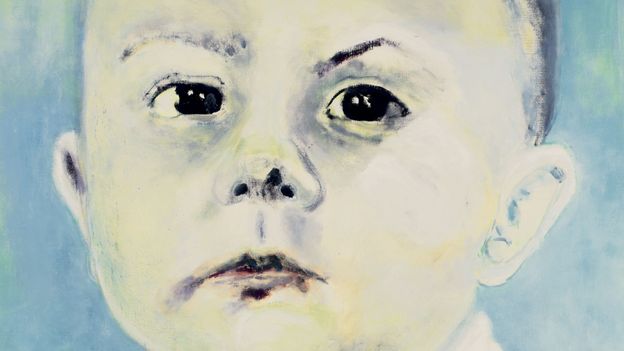Exposing the evil in the ordinary


Dumas, for her part, admires among others Edvard Munch, Francis Bacon, and the US portraitist Alice Neel (1900-1984), who also features in Close Up at the Beyeler Foundation. Neel’s expressed desire “to catch life as it goes by, hot off the griddle”, and to paint “people” – body and soul – rather than models, made a mark on her, and she acknowledges in hindsight The Painter’s debt to Neels’s Andy Warhol (1970).
As the Musée d’Orsay exhibition prepares to open, Grau cannot emphasise enough Dumas’s influence on “every young painter”. “She belongs to that great generation of artists who are women and who have completely shaped the way of art history,” he says.
Sensuous but cerebral, cruel but tender – Dumas’s work has overturned the aesthetic of portraiture, stripping back the veneer to reveal something loathsome and visceral but also sublime.
“There is no beauty if it doesn’t show some of the terribleness of life,” Dumas writes. “Art is there to remind us that all laws about what is beautiful and valuable were made by humans and can be changed by them.”
Close Up is running at the Beyeler Foundation, Basel until 2 January 2022.
Marlene Dumas, The Paris Spleen and Marlene Dumas, Conversations are showing at the Musée d’Orsay, Paris until 30 January 2022.
If you would like to comment on this story or anything else you have seen on BBC Culture, head over to our Facebook page or message us on Twitter.
And if you liked this story, sign up for the weekly bbc.com features newsletter, called The Essential List. A handpicked selection of stories from BBC Future, Culture, Worklife and Travel, delivered to your inbox every Friday.








